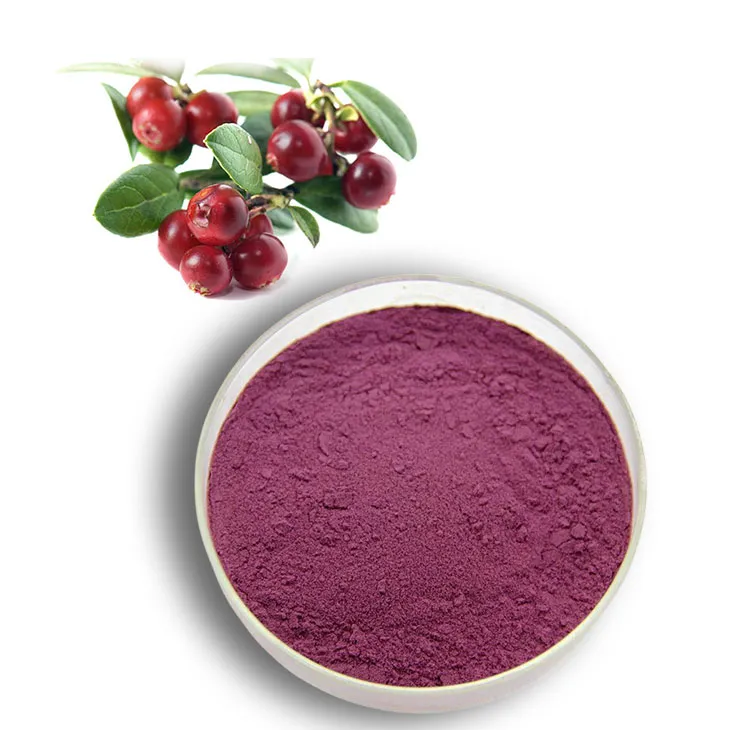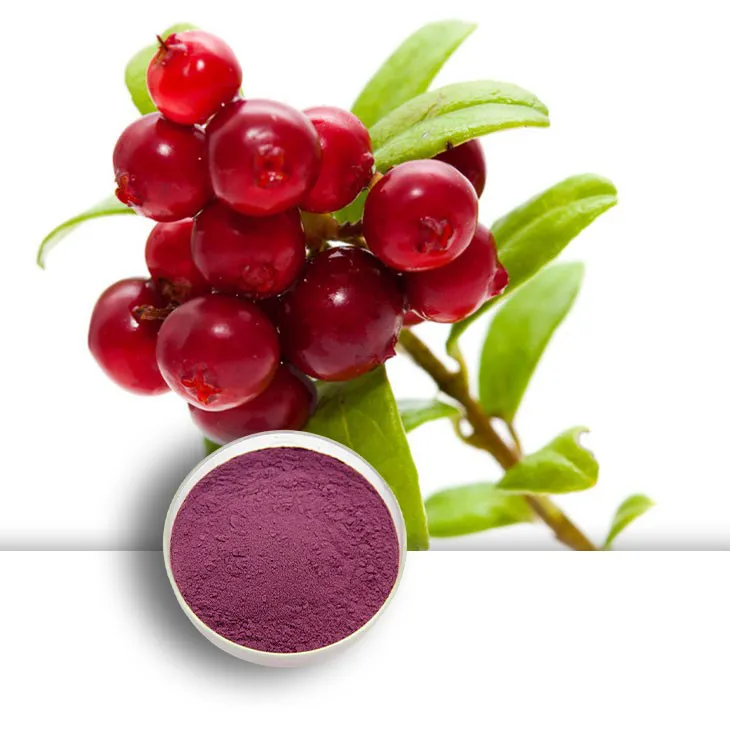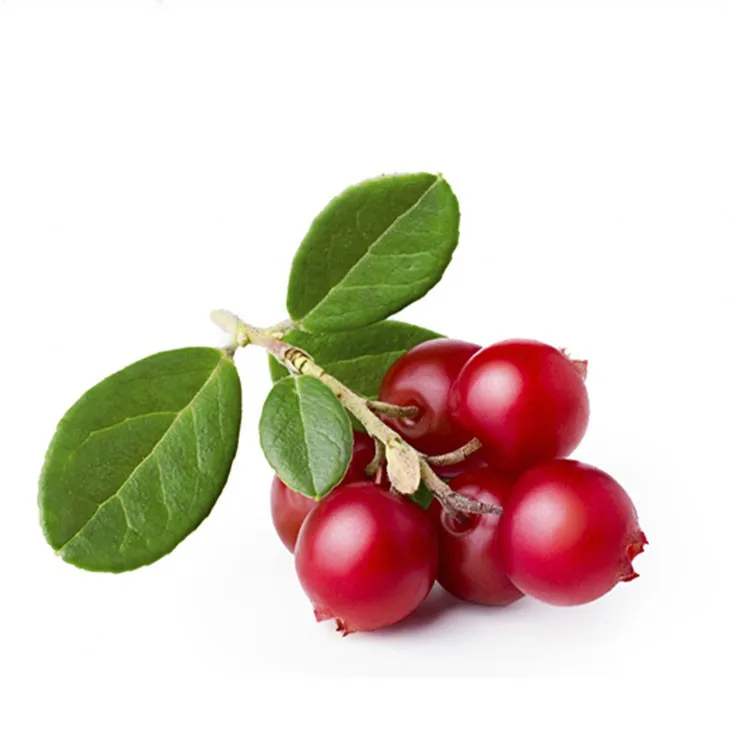- 0086-571-85302990
- sales@greenskybio.com
Is bilberry extract beneficial for diabetes? Are these all safe and applicable for diabetic patients?
2024-11-11

1. Introduction
Diabetes is a chronic metabolic disorder that affects millions of people worldwide. Management of diabetes often involves lifestyle changes, medications, and in some cases, the use of natural supplements. Bilberry Extract has been the subject of interest in relation to diabetes due to its potential health - promoting properties. In this article, we will explore how Bilberry Extract may offer advantages to diabetes sufferers, particularly in terms of insulin sensitivity and oxidative stress reduction, and also assess its safety for those with diabetes.

2. What is Bilberry Extract?
Bilberry (Vaccinium myrtillus) is a small, blue - black berry native to Europe. Bilberry extract is derived from these berries and is rich in various bioactive compounds. The main components of bilberry extract include anthocyanins, flavonoids, and phenolic acids. These compounds are known for their antioxidant, anti - inflammatory, and anti - apoptotic properties.

3. Bilberry Extract and Insulin Sensitivity
3.1 The Role of Insulin Sensitivity in Diabetes
Insulin sensitivity is crucial in diabetes management. In a healthy body, insulin helps cells take up glucose from the bloodstream. In diabetes, especially type 2 diabetes, cells become resistant to insulin, leading to elevated blood glucose levels. Improving insulin sensitivity can help regulate blood glucose more effectively.
3.2 How Bilberry Extract May Affect Insulin Sensitivity
There are several proposed mechanisms by which bilberry extract may enhance insulin sensitivity. Firstly, the anthocyanins in bilberry extract may activate certain signaling pathways in cells that are involved in glucose uptake. For example, they may stimulate the translocation of glucose transporter - 4 (GLUT - 4) to the cell membrane, which is essential for glucose entry into cells.
Secondly, bilberry extract may reduce inflammation in adipose tissue and liver. Chronic inflammation in these tissues is associated with insulin resistance. By decreasing inflammation, bilberry extract may help improve insulin action.
Moreover, some studies suggest that bilberry extract can modulate the gut microbiota. A healthy gut microbiota has been linked to better insulin sensitivity. Changes in the gut microbiota composition induced by bilberry extract may contribute to improved glucose metabolism.

4. Bilberry Extract and Oxidative Stress Reduction
4.1 Oxidative Stress in Diabetes
Diabetes is associated with increased oxidative stress. High blood glucose levels can lead to the overproduction of reactive oxygen species (ROS) in cells. ROS can damage cells, proteins, and DNA, and are involved in the development of diabetic complications such as neuropathy, retinopathy, and nephropathy.
4.2 The Antioxidant Properties of Bilberry Extract
The anthocyanins and other phenolic compounds in bilberry extract are powerful antioxidants. They can scavenge ROS and prevent oxidative damage to cells. By reducing oxidative stress, bilberry extract may help protect against diabetic complications.
In addition, bilberry extract may enhance the activity of antioxidant enzymes in the body, such as superoxide dismutase (SOD) and glutathione peroxidase (GPx). These enzymes play important roles in neutralizing ROS and maintaining cellular redox balance.
5. Safety of Bilberry Extract for Diabetic Patients
5.1 General Safety Considerations
When considering the use of bilberry extract for diabetic patients, safety is of utmost importance. In general, bilberry extract is considered safe when consumed in moderation. However, some people may experience side effects such as mild gastrointestinal discomfort, including nausea, diarrhea, or abdominal pain.
It is also important to note that bilberry extract may interact with certain medications. For example, it may enhance the blood - thinning effects of anticoagulant medications such as warfarin. Diabetic patients who are taking other medications should consult their healthcare provider before starting bilberry extract supplementation.
5.2 Purity and Quality of Bilberry Extract Products
The purity and quality of bilberry extract products on the market can vary widely. Some products may be contaminated with other substances or may not contain the claimed amount of active ingredients. It is essential for diabetic patients to choose high - quality bilberry extract products from reliable sources. Look for products that are standardized to a specific content of anthocyanins, which are the key bioactive components in bilberry extract.
6. Clinical Evidence on Bilberry Extract for Diabetes
While there are some pre - clinical studies and theoretical mechanisms suggesting the benefits of bilberry extract for diabetes, the clinical evidence is still somewhat limited. Some small - scale human studies have reported positive effects on blood glucose control and insulin sensitivity after bilberry extract supplementation. However, more large - scale, well - designed clinical trials are needed to confirm these findings and establish the optimal dosage and duration of treatment.
7. Conclusion
Bilberry extract shows potential in offering benefits to diabetes patients, particularly in terms of improving insulin sensitivity and reducing oxidative stress. However, more research is required to fully understand its effectiveness and safety for diabetic patients. Diabetic patients should be cautious when considering using bilberry extract, especially those taking other medications. Healthcare providers should be consulted before starting any new supplement regimen. Overall, while bilberry extract holds promise, it is not yet a substitute for established diabetes management strategies such as diet, exercise, and appropriate medical treatment.
FAQ:
Q1: What is bilberry extract?
Bilberry extract is derived from the bilberry fruit. It contains various bioactive compounds such as anthocyanins, which are antioxidants. These components are thought to have potential health - promoting properties.
Q2: How can bilberry extract affect insulin sensitivity?
Some studies suggest that the antioxidants in bilberry extract may help improve insulin sensitivity. By reducing inflammation and oxidative stress in the body, it might enhance the cells' ability to respond to insulin more effectively. However, more research is still needed to fully understand this mechanism.
Q3: In what way does bilberry extract reduce oxidative stress for diabetic patients?
The anthocyanins in bilberry extract are strong antioxidants. They can scavenge free radicals in the body, which are often increased in diabetic patients due to high blood sugar levels. By reducing oxidative stress, it may help prevent some of the complications associated with diabetes, such as damage to blood vessels and nerves.
Q4: Is bilberry extract safe for all diabetic patients?
While bilberry extract is generally considered safe for most people, it may interact with certain medications that diabetic patients are taking, such as blood - thinning medications or medications for blood sugar control. Also, some people may be allergic to bilberry. So, it's important for diabetic patients to consult their doctor before using bilberry extract.
Q5: How much bilberry extract should a diabetic patient take?
There is no standard recommended dose of bilberry extract for diabetic patients at present. The appropriate dose may depend on factors such as the patient's overall health, the severity of diabetes, and other medications they are taking. Again, it is crucial to consult a healthcare provider before starting to take bilberry extract.
Related literature
- The Potential of Bilberry in Diabetes Management"
- "Bilberry Extract: A Review of its Effects on Insulin Resistance"
- "Oxidative Stress and Bilberry Extract in Diabetic Complications"
- ▶ Hesperidin
- ▶ citrus bioflavonoids
- ▶ plant extract
- ▶ lycopene
- ▶ Diosmin
- ▶ Grape seed extract
- ▶ Sea buckthorn Juice Powder
- ▶ Beetroot powder
- ▶ Hops Extract
- ▶ Artichoke Extract
- ▶ Reishi mushroom extract
- ▶ Astaxanthin
- ▶ Green Tea Extract
- ▶ Curcumin Extract
- ▶ Horse Chestnut Extract
- ▶ Other Problems
- ▶ Boswellia Serrata Extract
- ▶ Resveratrol Extract
- ▶ Marigold Extract
- ▶ Grape Leaf Extract
- ▶ blog3
- ▶ blog4
- ▶ blog5
-
Organic Tongkat Ali extract powder factory.
2024-11-11
-
How to make powder with ashwagandha extract.
2024-11-11
-
Rosehip extract manufacturers from China.
2024-11-11
-
The best cat's claw extract in nature.
2024-11-11
-
Chinese Dandelion Leaf Extract Suppliers.
2024-11-11
-
Tongkat Ali Extract Powder
2024-11-11
-
Elderberry Extract
2024-11-11
-
Bilberry Extract
2024-11-11
-
Avocado Extract Powder
2024-11-11
-
Cocoa Extract
2024-11-11
-
Oat Straw Extract Powder
2024-11-11
-
Acerola Extract
2024-11-11
-
Rose Hip Extract
2024-11-11
-
Mango flavored powder
2024-11-11
-
Lotus leaf extract
2024-11-11




















